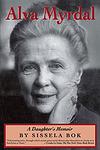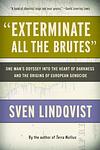The Greatest Lebanese, Swedish "Nonfiction" Books Since 1980
Click to learn how this list is calculated.
This list represents a comprehensive and trusted collection of the greatest books. Developed through a specialized algorithm, it brings together 300 'best of' book lists to form a definitive guide to the world's most acclaimed books. For those interested in how these books are chosen, additional details can be found on the rankings page.
Genres
Countries
Date Range
Reading Statistics
Click the button below to see how many of these books you've read!
Download
If you're interested in downloading this list as a CSV file for use in a spreadsheet application, you can easily do so by clicking the button below. Please note that to ensure a manageable file size and faster download, the CSV will include details for only the first 500 books.
Download-
1. Beirut Fragments by Jean Said Makdisi
"Beirut Fragments" is a poignant memoir that delves into the personal experiences of a woman living through the Lebanese Civil War. The narrative captures the daily struggles, fears, and the resilience of civilians caught in the crossfire of a fragmented city. Through her eyes, readers witness the transformation of Beirut from a vibrant cultural hub to a landscape scarred by violence and destruction. The author's reflections offer a deeply human perspective on the impact of war, the loss of loved ones, and the enduring hope for peace amidst chaos. Her story is a testament to the strength of the human spirit in the face of relentless adversity.
-
2. Alva Myrdal: A Daughter's Memoir by Sissela Bok
This memoir provides an intimate portrayal of a Nobel laureate and prominent figure in international diplomacy and social reform, as seen through the eyes of her daughter. The book delves into the complexities of the subject's public achievements and personal life, exploring the challenges she faced as a woman in the mid-20th century balancing a career with family responsibilities. The daughter's perspective offers a unique insight into the character and legacy of a woman who made significant contributions to social policy and disarmament, while also shedding light on the familial relationships that shaped her life and work.
-
3. Exterminate All The Brutes by Sven Lindqvist
The book is a profound exploration of European imperialism and the roots of genocide, blending travelogue, personal diary, and historical analysis. The narrative delves into the dark history of colonialism, examining how racist ideologies were used to justify the extermination and subjugation of non-European peoples under the guise of civilization and progress. Through a series of interwoven reflections and accounts, the author confronts the violence and atrocities committed by European powers in Africa and beyond, challenging readers to acknowledge and understand the brutal legacy of colonialism that has shaped the modern world.
-
4. The Vanished Imam by Fouad Ajami
"The Vanished Imam" delves into the life and legacy of Musa al Sadr, a charismatic Lebanese Shia cleric who mysteriously disappeared in 1978. The book explores his influential role in the transformation of the Shia community in Lebanon from a marginalized group to a significant political force. Through a detailed narrative, the author examines al Sadr's efforts to empower the Shia, his establishment of the Amal Movement, and his disappearance during a trip to Libya, which remains a contentious issue in the Middle East. The book also provides a broader analysis of the social and political dynamics of Lebanon and the region, highlighting the complexities of identity and power.
-
5. Factfulness by Hans Rosling
The book challenges common misconceptions about the state of the world, using a wealth of statistical data to argue that, contrary to popular belief, global living conditions are improving significantly. It introduces ten instincts that distort our perspective—from the fear instinct (which leads us to perceive the world as more frightening than it is) to the destiny instinct (which causes us to assume that the fates of populations are predetermined). The author, a renowned public health expert, encourages readers to adopt a "factful" mindset, which relies on data and evidence to create a more accurate understanding of the world, ultimately fostering a more positive and productive approach to global challenges.
-
6. The Black Swan by Nassim Nicholas Taleb
The book delves into the profound impact of highly improbable and unpredictable events that have massive consequences, which the author terms as "Black Swans." It challenges our understanding of the world by critiquing how we rely on simplistic models to predict the future, often overlooking the possibility of such rare events that can reshape our reality. Through a blend of philosophical insights and practical wisdom, the narrative encourages readers to embrace uncertainty and unpredictability, arguing that our ability to deal with Black Swans is more important than trying to predict them. The author's exploration spans across various domains, including finance, science, and history, illustrating how Black Swans have shaped the course of human events and urging a reevaluation of how we think about risk and reward in an inherently unpredictable world.
-
7. Life 3.0 by Max Tegmark
This book explores the future of artificial intelligence (AI) and its impact on the fabric of human existence, proposing a framework for understanding the progression of life through the lens of technological evolution. It delves into the potential scenarios that could unfold as AI surpasses human intelligence, raising profound questions about consciousness, the role of humans in a world shared with advanced AI, and how society can navigate the ethical, political, and existential challenges this new era presents. The author encourages a proactive approach to designing and governing AI technologies, emphasizing the importance of aligning them with human values and interests to ensure a future where humanity can thrive alongside increasingly intelligent machines.
-
8. No One Is Too Small To Make A Difference by Greta Thunberg
"No One Is Too Small To Make A Difference" is a collection of speeches by Greta Thunberg, a young climate activist who gained international recognition for her efforts to combat climate change. Through her powerful and passionate words, Thunberg emphasizes the urgency of taking action and highlights the responsibility of individuals, governments, and corporations to address the environmental crisis. This book serves as a call to action, inspiring readers to join the global movement for a sustainable future.
Reading Statistics
Click the button below to see how many of these books you've read!
Download
If you're interested in downloading this list as a CSV file for use in a spreadsheet application, you can easily do so by clicking the button below. Please note that to ensure a manageable file size and faster download, the CSV will include details for only the first 500 books.
Download






